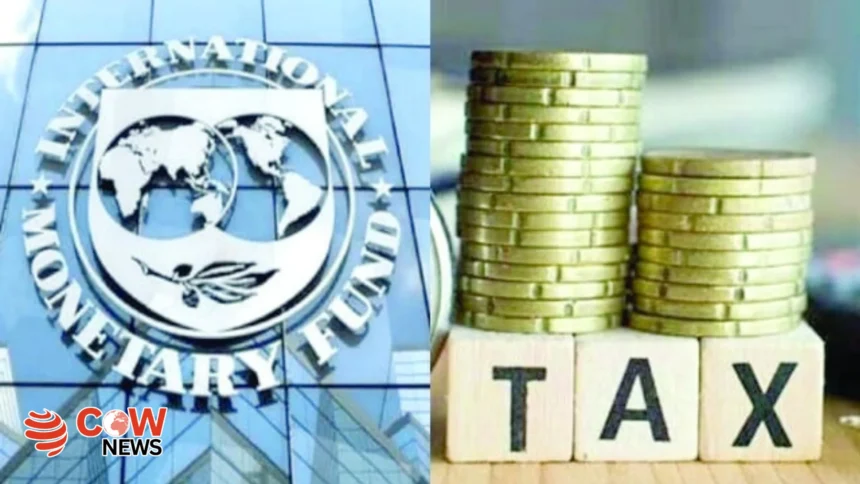Aurangzeb assured that the shortfall would be significantly less than Rs1 trillion, adding that the government plans to implement various measures, including securing recoveries from court cases.
However, sources disclosed that the global lender was informed that due to lower-than-projected autonomous growth, the Federal Board of Revenue (FBR) had incurred a loss of approximately Rs450 billion by February. No additional shortfall on this account is anticipated until June.
Additionally, losses of Rs540 billion are expected due to weak responses to policy measures. The government has faced challenges in overcoming resistance from powerful trader and real estate lobbies.
This has led to a total revenue shortfall of Rs990 billion, driven by low economic growth, weak enforcement against traders and the real estate sector, and overestimated projections for new tax measures introduced in the budget. Despite these challenges, the IMF was informed that some losses would be recovered through court rulings on tax matters. The government had set an annual revenue target of Rs12.97 trillion, but after adjusting for these shortfalls, collections are now expected to fall below Rs12 trillion, sources said.
The finance minister expressed confidence in the talks, stating that the government anticipates a positive outcome. He also confirmed that Pakistan would discuss the framework for the next budget with the IMF during the ongoing negotiations to create fiscal space for relief measures.
“We had a good start in the talks today, and the Fund also held productive meetings in Karachi on Monday with the Pakistan Banks Association and the Pakistan Business Council,” Aurangzeb stated.
For the first time, the IMF is holding separate meetings with the State Bank of Pakistan (SBP) and the federal government in different cities, departing from the previous practice of conducting all negotiations in one location. Pakistan and the IMF are engaged in talks from March 3 to 14 for the first review of the $7 billion package. The discussions aim to assess the implementation of agreed conditions for the July-December period of the current fiscal year. A successful review will clear the way for the release of the second loan tranche exceeding $1 billion.
After meeting the SBP governor in Karachi, IMF Mission Chief to Pakistan Nathan Porter initiated talks with the finance minister in Islamabad. During the briefing, Porter addressed issues related to the FBR, the power sector, and the Pakistan Sovereign Wealth Fund (PSWF). He also acknowledged the implementation of agricultural income tax laws in the provinces.
On Tuesday, the IMF team held multiple rounds of discussions with the FBR on tax collection performance for the current fiscal year. The FBR’s eight-month revenue shortfall stood at Rs606 billion, which could escalate to nearly Rs1 trillion by June without corrective measures. The IMF was informed that the government plans to recover around Rs300 billion from the Rs4 trillion tied up in court cases. An additional Rs100 billion is expected to be raised by reducing taxes on beverages and cigarettes, sources said.
Prime Minister Shehbaz Sharif, during a special open cabinet meeting, said the government is working swiftly to secure court rulings in tax cases involving Rs4 trillion. He highlighted the recovery of Rs23 billion in the windfall income tax case, which was decided in the government’s favor by the Sindh High Court last week.
The prime minister instructed authorities to recover at least Rs500 billion from the Rs4 trillion stuck in court cases by June. Attorney General for Pakistan Mansoor Awan informed the cabinet that the legal team would closely monitor these cases. He added that tax case delays were due to outdated legal procedures adopted by the FBR, but with the prime minister’s intervention, these mechanisms have now been revised.
Despite this, the government has given a conservative recovery estimate of Rs300 billion to the IMF, FBR officials said.
However, the Supreme Court of Pakistan recently ruled against the government in multiple tax cases, suggesting that not all pending cases may be decided in favor of the tax authorities.
In the past, the IMF has been skeptical of the government’s claims regarding revenue collection from pending court cases and enforcement measures, a skepticism that has often proven justified. It remains uncertain whether the IMF will accept the government’s assertion that Rs300 billion will be recovered this time.
If the IMF rejects the government’s projections, the Ministry of Finance will have to explore alternative ways to cut expenditures. Development spending has already been reduced and may face further cuts.
According to the FBR’s analysis, revenue losses amounted to Rs338 billion in the first half of the fiscal year due to economic slowdown, exchange rate stability, lower-than-expected inflation, and sluggish recovery in large-scale manufacturing. By the end of February, this shortfall had expanded to Rs450 billion, sources said.
The government assured the IMF that the economy is expected to recover from March onward, preventing further revenue losses through autonomous growth in the March-June 2025 period.
Aurangzeb admitted that many policy measures had not delivered the expected revenue results.







